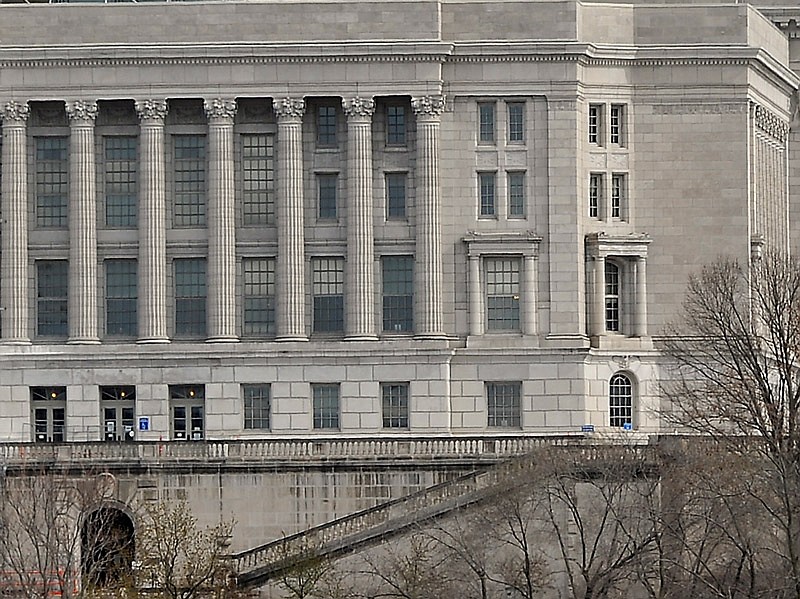The state's budget outlook has improved enough that more than $40 million of general revenue can be put back into the budget after withholds this summer, Missouri Gov. Mike Parson announced Wednesday.
Parson added nearly $95 million in federal aid will also be used to support critical needs - especially education.
Amid the ongoing economic damage from the COVID-19 pandemic, Parson announced in July - at the start of the current fiscal year for the state - that $448 million was being withheld from the budget.
Elementary and secondary education took the biggest single hit of those restrictions, with $123 million less for the state's school aid Foundation Formula, and millions more withheld from programs within the Department of Elementary and Secondary Education.
The 2021 budget also included nearly $28 million less for Missouri's colleges and universities, and more than $18 million less for community colleges.
Parson said Wednesday that between the more than $133 million in general revenue and federal Coronavirus Aid, Relief and Economic Security Act funds, nearly $100 million would support K-12 and higher education:
$61.5 million in CARES Act funding for K-12 education - made possible by new spending guidelines - to be disbursed to school districts through DESE on a per-pupil basis, similar to Foundation Formula funds.
$26 million in general revenue for higher education.
A later news release from Parson's office said this would be for public community colleges and four-year institutions.
The money restores about half of what was withheld this year from community colleges and four-year institutions, according to included documentation.
State Technical College of Missouri had about half of its withheld funding restored - more than $109,000 of $219,665.
$10 million in CARES Act funding for private colleges and universities, including for purchases of personal protective equipment and other pandemic-related expenses.
Parson said the remaining money would be used to support needs including assisted living, residential care and independent living facilities, as well as child care providers, seniors, people with developmental disabilities, individuals suffering from substance abuse or barriers to entering the workforce, infrastructure and military communities.
Independent living centers funded through DESE had half of their withheld general revenue funding restored.
Senior independent living programs funded by general revenue through the Department of Health and Senior Services had all their $100,000 restored.
Developmental disability community programs funded by general revenue through the Department of Mental Health had about half of their withheld funding restored - $3.9 million of $7.8 million.
Parson added, "These funds will also help ensure that those who receive government assistance actually qualify for that assistance, ensuring better accountability for taxpayer money," though neither he nor his office immediately included any more details.
However, documentation noted a full $200,000 of general revenue funding was being restored to the Department of Social Services' Medicaid audit and compliance unit, as well as a full $1.5 million for DSS' third party eligibility verification services.
The news release from Parson's office also stated remaining funds would also be used to "help fight violent crime through the attorney general's Safer Streets Initiative."
That's more than $898,000 of general revenue in support for the initiative.
The full $150,000 of general revenue previously withheld from the attorney general's office's investigations into potentially illegal "gray market" gaming machines was also restored, as were $300,000 through DESE for school safety training grants.
In terms of CARES Act funds, $250,000 through DESE will support independent living centers for PPE purchases and other pandemic-related expenses.
DESE will also receive $2 million to support background checks and certificates for substitute teachers.
The Department of Mental Health will receive $1 million for the "Access to Recovery Program," including PPE purchases and other pandemic-related expenses.
DHSS will receive $10 million to support child care providers, including PPE purchases and other pandemic-related expenses.
DSS will receive another $10 million to support assisted living and residential care facilities, including PPE purchases and other pandemic-related expenses.
Parson said the budget was originally calculated based on a projected unemployment rate of approximately 16.3 percent, while that rate is currently 7 percent - less than half as bad as originally expected, and lower than the national average of 8.4 percent.
His administration also this week released the September general revenue report, showing net general revenue collections to date increased more than 33 percent compared to September 2019 - from $2.31 billion to $3.09 billion.
Collections from sales and use taxes, individual income taxes and corporate income and corporate franchise taxes are all up for the year, according to the announcement of that report from the Office of Administration.
Parson still expected a special session on a supplemental budget at some point - despite his budget announcements and news from Washington, D.C., that stimulus talks have stalled.
"That possibility's always there, and I would assume (a special session) will happen," he said. There are still a lot of unknowns, "but we may very well do that just to make sure that we're prepared in case they do (pass a stimulus bill) between now and the first of the year, because if they do pass a second portion of the CARES Act or something, we want to be prepared to accept the money. We don't want to lose out."

